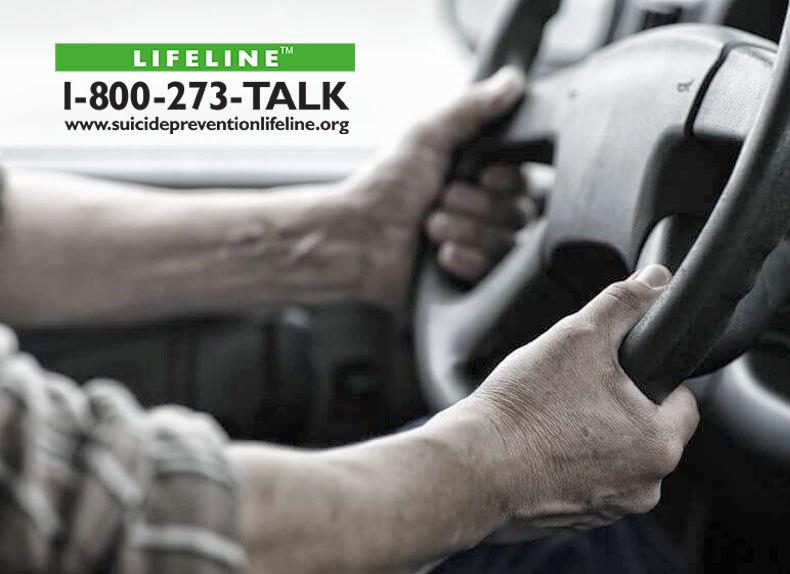Mental Health Awareness Month is upcoming and it’s really easy to dismiss mental illness symptoms as just being “in a mood”, however, depression, anxiety, etc. are very real.
No one is exempt from suffering depression, it can affect people from all walks of life, so understanding that mental illness is not a sign of weakness is the first step towards getting to a better place.
We spend most of our days by ourselves on the road, far away from our support system. Our family and friends are sometimes the only beacon of light to keep us going. We are left to our own thoughts and it’s real easy to chase the negativity and “go down the rabbit hole”.
The world starts shutting down, the darkness closes in and you feel hopeless. The call of the void is darker than the pavement and it seems as endless as the road itself. It hurts to move and it hurts to exist, and giving up seems easy.
You’re going through a depressive episode.
The Diagnostic Manual of Mental Disorders defines a major depressive episode as at least two weeks of a depressed mood or loss of interest and/or pleasure in almost all activities, as well as at least five other symptoms, such as:
- Sleep issues on an almost daily basis (either difficulty sleeping or sleeping too much)
- Changes in appetite and weight (change of more than 5 percent body weight in a month) or a decrease or increase in appetite nearly every day
- Decreased energy or fatigue almost every day
- Difficulty concentrating, making decisions, and thinking clearly
- Psychomotor agitation or retardation that is observable by others (slow physical movements or unintentional or purposeless motions)
- Recurrent thoughts of death or suicide, a suicide attempt, or a specific plan for suicide
So what to do?
Depression and other mental health issues are very treatable. With the proper help you can overcome these feelings of hopelessness.
If you suspect you have depression, or going through a depressive episode, please know that you’re not alone. Reach out and talk to your support system and healthcare provider. A physician can assess your symptoms and refer you to a specialist if necessary.
You can also contact a mental health professional directly to discuss treatment options.
If you suspect someone you know has depression, address your concerns. The individual may be willing to seek treatment if you bring up the subject. And treatment could save someone’s life.
Reach out, hold on to life and keep on trucking.
National Suicide Prevention Lifeline
We can all help prevent suicide. The Lifeline provides 24/7, free and confidential support for people in distress, prevention and crisis resources for you or your loved ones, and best practices for professionals.
1-800-273-8255
